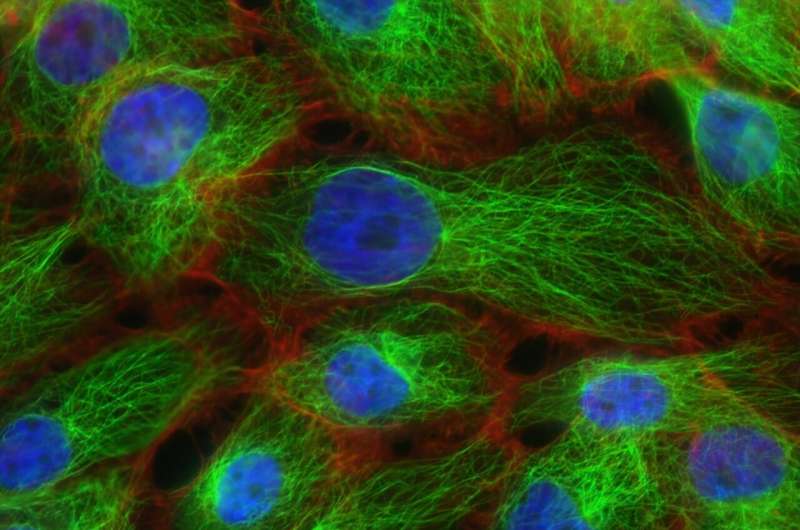
A research paper published today in The Lancet Oncology demonstrates that the drug enobosarm, a selective androgen receptor modulator that stimulates the male sex hormone receptor, has anti-tumor effects in estrogen receptor-positive breast cancer patients.
Lead author Professor Carlo Palmieri from the University of Liverpool and The Clatterbridge Cancer Centre NHS Foundation Trust, said, “These results are very encouraging—we have shown that in advanced/metastatic breast cancer the use of enobosarm can result in clinical benefit, and is the first clinical proof that a non-estrogen receptor approach with a selective androgen receptor modulator can result in clinical benefit. This builds on the pre-clinical evidence that we published in Nature Medicine.”
For at least 40 years, treatment of this type of breast cancer has focused on directly targeting and inhibiting the activity of the estrogen receptor. This new study, therefore, tested a completely different approach.
The orally administered drug enobosarm is a selective androgen receptor modulator, which can stimulate androgen receptor activity in breast cancers. The androgen receptor is a tumor suppressor in estrogen receptor positive breast cancer.
The multi-site international study led by Dr. Beth Overmoyer of the Dana-Farber Cancer Institute of Boston U.S. evaluated the efficacy and safety of enobosarm in 136 postmenopausal women with locally advanced or metastatic ER-positive, HER2-negative breast cancer (HER2 is a protein called human epidermal growth factor receptor 2, which promotes the growth of cancer cells). Enobosarm was found to have anti-tumor effects, as well as being well tolerated with no significant impact on quality of life.
“These data support further development and assessment of the efficacy of enobosarm and other agents which stimulate the androgen receptor for the treatment of AR-positive, ER-positive, HER2-negative advanced breast cancer,” according to the research.